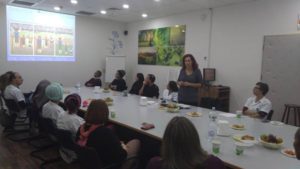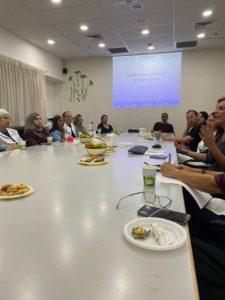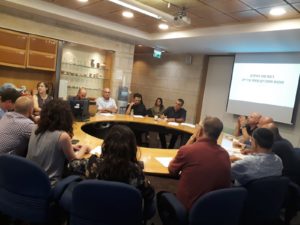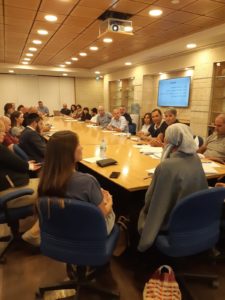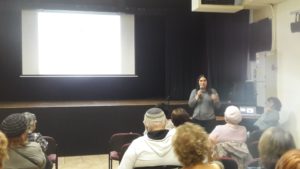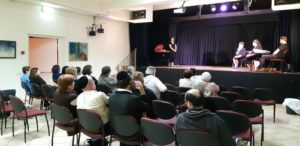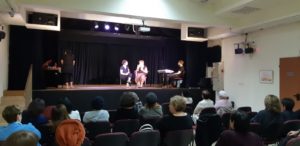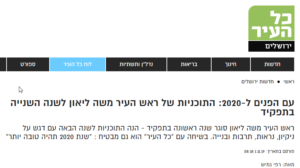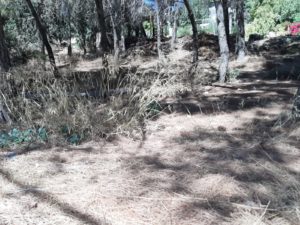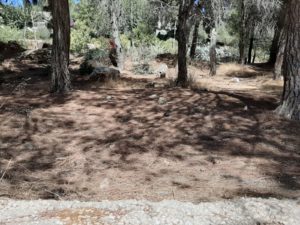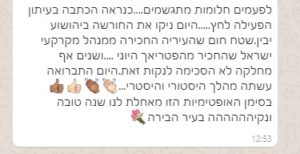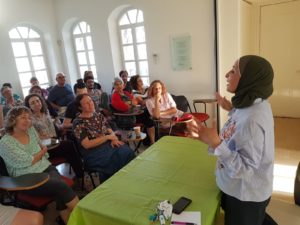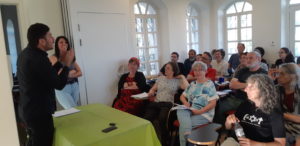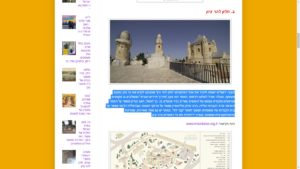Cultural Competence Workshop at Herzfeld Geriatric Hospital
Herzfeld Geriatric Rehabilitation Medical Center, operated by the Clalit Health Services, is located in the southern town of Gadera and serves populations in the Gadera / Rehovot area. As part of the hospital’s efforts to integrate cultural competency into the hospital, we were invited to lead Cultural Competency workshops for staff members.
The workshop, which took place on November 21, included staff from all professions in the hospital – doctors, nurses, paramedical and administration – who shared with us the unique challenges of caring for an elderly population, often for a long time. Patients from different cultural groups come to the hospital, often accompanied by foreign workers. Family involvement is also a key factor, as are the physical, mental, and cognitive difficulties of the older people. The staff itself is also very diverse, sometimes assisting patients or families from his or her cultural group in bridging cultural gaps. On the other hand, treating a person from one’s own group can also cause conflicts and dilemmas. One participant told of how she recently gave birth, and in her culture it is customary to give money to the mother right after giving birth. One of the patients approached her during a shift and gave her money. What should she have done? On the one hand, she’s not allowed to receive money or gifts from patients. On the other – this was a cultural convention and it is difficult to change older people’s habits, especially in this type of situation.
In the workshop, we talked about our key cultural values and those of the patients. We tried to identify them in hospital situations, find ways to bridge the gaps, and most importantly – try to interpret behavior, which may at first seem strange or even irritating to us, positively.
In order to understand worldviews, practices and health considerations of a patient, dialogue is a must. Such a conversation, which is based on asking open questions, is especially important when there are gaps between the caregiver and the patient. After watching a short tutorial video produced by the JICC, the participants shared how they identified with the cases where different people in the room have different agendas, and it is the caregiver’s job is to reveal them, and to consider them when communicating with the patient and those accompanying him.
As part of the discussion, we also talked about cases where cultural competence is not the correct or desired response – cases in which adapting to one patient will hurt another (family member or staff member), or when it would cause unethical medical behavior (such as delivering bad news to the patient instead of his or her family, as is customary in some cultures).
The workshop opened up new horizons for all. One participant commented:
We would like to thank you for the great privilege of participating in the fascinating workshop you delivered today for staff at the Herzfeld Geriatric Rehabilitation Hospital Rehabilitation. The workshop was instructive, enlightening, empowering and interesting. Your excellent delivery, the accessibility of the tools you taught and the vast amount of knowledge you have, along with the extraordinary sensitivity and humor will accompany us and all the participants of the workshop! Participants felt comfortable in taking part and in sharing, and expressed great interest in this important topic and were thirsty for the great amount of information they received. Looking forward to the [next] long workshop.
In our next workshop we’ll work with a professional actress, who will help participants to practice the tools they learned, including through role playing.
Many thanks to Herzfeld Medical Center for organizing the meeting and assistance in preparing the content adapted to their needs.

